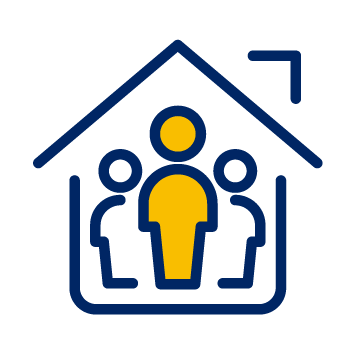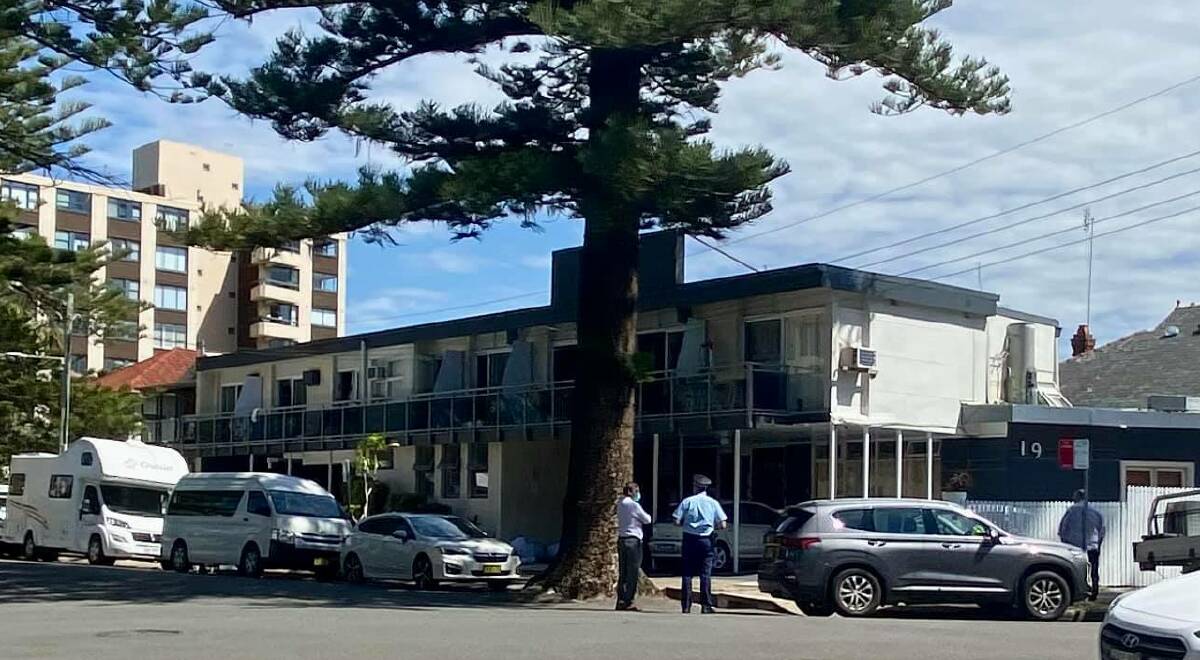Some premises may make it a condition of entry that you are fully vaccinated or wear a face mask.
NSW Health strongly advises people get fully vaccinated and wear a face mask where they cannot physically distance.
The blitz of Omicron variants has felt like one long wave. And many questions have arisen amid the tumult. Are we seeing the emergence of entirely new coronavirus variants that are impervious to immunity from vaccines and previous infections? If we keep getting reinfected, is it inevitable that most of us will end up developing long Covid?
In short, the answer is no. As a virologist, it’s important to me that people understand Covid-19 remains a great concern. But this does not excuse or license a misdiagnosis of the current situation.
Let’s start with what is true. BA.5, one of the most recent Omicron variants to emerge, is everywhere. It unquestionably has an advantage in terms of transmissibility over previous Omicron lineages, most likely because it’s better at evading our existing repertoire of antibodies. BA.5 and its close cousin BA.4 have a key mutation that enables them to sneak past an important class of so-called broadly neutralizing antibodies. These particular antibodies did a great job of preventing infections from a wide swath of earlier variants.
In recent weeks I’ve watched many vaccinated friends and family members get infected with the coronavirus for the first time. The most concerning of these are cases like a colleague of mine who was infected in May and again in June, both times becoming ill.
Thankfully, reinfection a few weeks after recovery is not the norm. Scientists have shown that people who previously contracted Covid-19 are less likely to get infected with the variant du jour than people who had never seen the virus, and this trend holds true for Omicron. Early research from Qatar that has not yet been peer-reviewed showed that people who had a BA.1 infection in, say, January were significantly less likely to experience a BA.4 or BA.5 breakthrough infection months later. While more research on this is welcome, these findings are consistent with how immunity, played out at the population level, helps explain the rise, fall and magnitude of epidemic waves.
Antibodies remain a powerful defense against this coronavirus. They do many things to protect us, while also flagging the virus for destruction by other elements of the immune system. Even though some studies have found that Omicron variants may induce weaker antibody responses than earlier variants, this is most likely because Omicron causes less severe disease, thanks to immunity from vaccines and prior infections.
Our immune system works much like a wise yet frugal investor, calibrating responses according to the magnitude and extent of the various danger signals sensed during infection. Generally speaking, the greater the symptoms and disease from infections like Covid or the flu, the stronger the antibody response. When existing antibodies are good enough to keep disease to a minimum (because fewer virus particles succeed in replicating in the body), we tend to see much lower amounts of antibodies than when someone ends up hospitalized from the coronavirus. Vaccines are a great way around that problem: They stimulate our immune systems to make antibodies, and other tailored defenses, even when there is no disease.
Please excuse any typos as this was sent from my iPhone
Current restrictions have been extended to Mon 28 Feb.
Stay up to date with the evolving rules.
COVID-19 Safe QR check-ins required!
Rules and restrictions for all people living in NSW.
Some premises may make it a condition of entry that you are fully vaccinated or wear a face mask.
NSW Health strongly advises people get fully vaccinated and wear a face mask where they cannot physically distance.
COVID-19 Safe QR check-ins required!
Rules and restrictions for all people living in NSW.
Check the rules below that apply to everyone in NSW.
Some premises may make it a condition of entry that you are fully vaccinated or wear a face mask.
NSW Health strongly advises people get fully vaccinated and wear a face mask where they cannot physically distance.
23 December 2021
The NSW Government is taking precautionary steps to maintain its safe and measured approach as we continue to learn to live with COVID.
The following adjustments to the NSW Government’s pandemic settings will come into effect:
From 12.01am Friday, 24 December:
Masks will be compulsory in all indoor non-residential settings, including for hospitality staff and in offices, unless eating or drinking.
From 12.01am Monday, 27 December 2021:
All settings will remain in place until Wednesday, 27 January 2022.
Extending QR check-in requirements will remind people that if they receive a notification they should be tested if they feel unwell. They should also get tested if they are directed by NSW Health or if they have symptoms.
Further to these measures, the Government is asking people to reduce mingling where they can including when eating and drinking, work from home where possible and hold events outside.
The NSW Government will continue to monitor these settings.
The NSW Government will also procure Rapid-Antigen Test kits and make them available for free to people across the State, to give additional options to people and allow those who need to get a PCR test to do so.
Premier Dominic Perrottet said these measures would help take the pressure off our health system and keep the community safe until more people could get their booster shots.
“We said we would tailor our settings as the situation evolved and these steps will help take the pressure of our health system, so the people who need care can access it,” Mr Perrottet said.
“Our frontline health workers have done an enormous job keeping us safe over the past two years and we can’t thank them enough.
“Vaccination remains the key to keeping people safe and out of hospital. It is vital people continue to roll up their sleeves to get vaccinated and receive their boosters.”
Health Minister Brad Hazzard thanked people for continuing to come forward in large numbers to get tested and urged everyone to follow the restrictions.
“We thank people for coming out in large numbers to get tested but we need to make sure that tests are available for people who really need it,” Mr Hazzard said.
“If you don’t have any symptoms, please don’t get a test just for the sake of it. The best thing people can do is follow the rules outlined today. The health and safety of the community continues to be the highest priority.
“I want to again thank NSW Health for the work they are doing in response to the pandemic.”
Restrictions will ease when NSW reaches 95% double vaccination or on 15 December, with changes including:

Masks and QR codes

Visiting family and friends

Exercise and recreation

Schools

Shopping and personal services

Restaurants and hospitality

Working from home

Travel and transport

International travel

Events and entertainment

Weddings and religious services
The roadmap may be fine-tuned as NSW Health monitors the COVID-19 situation over the coming weeks.
Local government areas may be subject to different rules and restrictions in line with Public Health Orders.
New rules are in place for fully vaccinated people in NSW.
You are fully vaccinated if you have had 2 doses of a COVID-19 vaccination or you have a medical exemption.
Children under 16 years of age who are not fully vaccinated can generally follow the rules for fully vaccinated people so long as they visit certain businesses with a fully vaccinated member of your household.
For people over the age of 16 who are not fully vaccinated, more rules and restrictions apply.
You are not fully vaccinated if you have had:
With the first vaccination milestone of 70 percent double vaccination reached, the NSW Government is easing a number of restrictions as part of the Reopening NSW roadmap(Opens in a new window), which will allow fully vaccinated adults to enjoy more freedoms from next Monday 11 October.
The changes to the 70 per cent roadmap will allow:
Indoor pools will also be re-opened for swimming lessons, squad training, lap swimming, and rehab activities. Keep an eye on our aquatic centre webpages for more information on our local pools.
The NSW Government also announced on the Monday after NSW clears the 80 per cent double vaccination hurdle further restrictions will be relaxed, with people able to have:
All roadmap freedoms at 70 and 80 per cent will continue to be for fully vaccinated people only.
www.northernbeaches.nsw.gov.au/council/news/additional-restrictions-ease-nsw-government-roadmap
The NSW Government has announced the roadmap from easing restrictions as NSW reaches the 80 per cent double dose target.
From the Monday after NSW hits the 80 per cent (aged 16 and over) double dose vaccination target, eased restrictions will allow those who are fully vaccinated to have up to 10 people visit their home, participate in community sport, and access hospitality venues (where drinking while standing up will be allowed indoors). All premises will operate at 1 person per 4sqm indoors, and 1 person per 2sqm outdoors.
Over the coming weeks, NSW Health and the Office of Sport will work with the sector to finalise the details and requirements for the recommencement of community sport.
COVID-19 roadmap to recovery fact sheet

THE number of Covid-19 cases in the northern beaches has risen to triple digits again, with 102 infected people.
Last week the numbers were hovering around the mid 60s, but after no data from NSW Health for a few days cases have shot back up, the report to 8pm on Monday shows.
The highest number of cases are in the 2099 postcode at 25. This area, which includes Dee Why, Cromer, Narraweena and North Curl Curl, also has the highest population in the LGA at 44,119 people.
There are currently no Covid-19 cases in the 2105 (Church Point, Scotland Island and Elvina, Lovett and Morning bays) and 2102 (Warriewood) postcodes.
Across NSW, Covid cases have also shot upwards with 1022 new cases reported in the 24 hours overnight.
A further 10 people died overnight, eight men and two women, all from Sydney. That takes the total of fatalities in this outbreak across NSW to 255.
Dear NSW tennis community
Firstly, we hope that you are all keeping well and safe during these challenging times. We thank you for your patience as we have been examining the current Public Health Order and the impacts on tennis activity throughout NSW.
Tennis NSW has been overwhelmed with requests from the community around the varying levels of restrictions now in place throughout NSW. We are working to present our guidance on tennis activities across NSW in a format that is easy to understand and to update our FAQs, we anticipate this will be available Monday 20 September.
During this week several LGAs across NSW have come in and out of lockdown as local COVID-19 cases emerge. Tennis NSW reminds its community to use the NSW Government’s webpage search that allows you to identify your current rules and restrictions by postcode. Tennis NSW staff will not undertake these searches for you.
In regards to doubles play and double vaccination, Tennis NSW is able to provide the following guidance:
Tennis NSW has received numerous enquiries in relation to whether doubles play is permitted given the partial lifting of restrictions for individuals who have been double vaccinated.
We have engaged NSW Health and NSW Office of Sport to get clarity and confirmation on whether it is the responsibility of the individual or the club/venue to ensure that they are fully vaccinated. Without receiving clarity on ultimately who is liable, then our advice is as follows:
Doubles play at a venue in a Stay-At-Home Area is NOT permitted unless the Club/Venue Operator has means by which they can verify the vaccination status of anyone wishing to play doubles at their venue. Alongside of this, the Club should be implementing all relevant COVID protocols including having a COVID-19 Safety plan, COVID-19 check-in stations and all other necessary protocols to effectively implement the 1 person per 4sqm rule (outdoor courts only) can be adhered to. All play at the venue should be on a ‘Play and Go’ basis and the Club/Venue should not permit any gatherings pre or post play.
We believe that the large majority of our venues across the State are unable to meet the requirements above however, any Club/Venue wishing to implement appropriate processes should conduct their own risk analysis and make a decision based on their own circumstances and resources.
Clubs should also note that we are aware that the NSW Police have interpreted the current Public Health Order differently in different parts of the State and should therefore be prepared to provide evidence of how they are effectively implementing and monitoring the vaccination status of those using their venue should they be asked to.
We believe that in the spirit of the Public Health Order then it is reasonable for a Club/Venue Operator to ask for evidence of a person’s vaccination status prior to play commencing.
We have also been asked what our position will be longer term in regards to double vaccination and how it will relate to participating in tennis whether it be coaching, court hire or competition.
At this stage, it is too early to provide a definitive position on this matter until we have received further guidance from the NSW Government and the Office of Sport in regards to a roadmap back for Community Sport. There is also the broader matter of whether it will be legally permissible to require all users of a tennis venue or entrants into a tennis competition/tournament to be double vaccinated. We will continue to liaise with Tennis Australia, our other Member Associations and the other State Sporting Organisations in NSW to provide a consistent position across our sport and the wider sports community.
While Tennis NSW can provide guidance, it is the responsibility of the club, coach or venue to undertake its own independent enquiries as to whether that guidance is appropriate to be implemented. We appreciate that many of you are seeking answers for individualised questions that unfortunately we are not in a position to answer. Tennis NSW provides general advice only, and specific advice regarding the circumstances of a particular venue will need to be sought independently.
We are in the process of setting up a dedicated COVID-19 enquiry email address and this will be notified to you when our updated guidance is released next week. In the meantime, if you have any questions regarding COVID-19 restrictions and tennis, please contact us at [email protected]. We have a team addressing the large volume of enquiries coming through and we will endeavour to get back to all COVID-19 related enquiries within two business days.
Thank you and stay safe
Tennis NSW
Corner Belgrave & Raglan Streets
Manly NSW 2095
